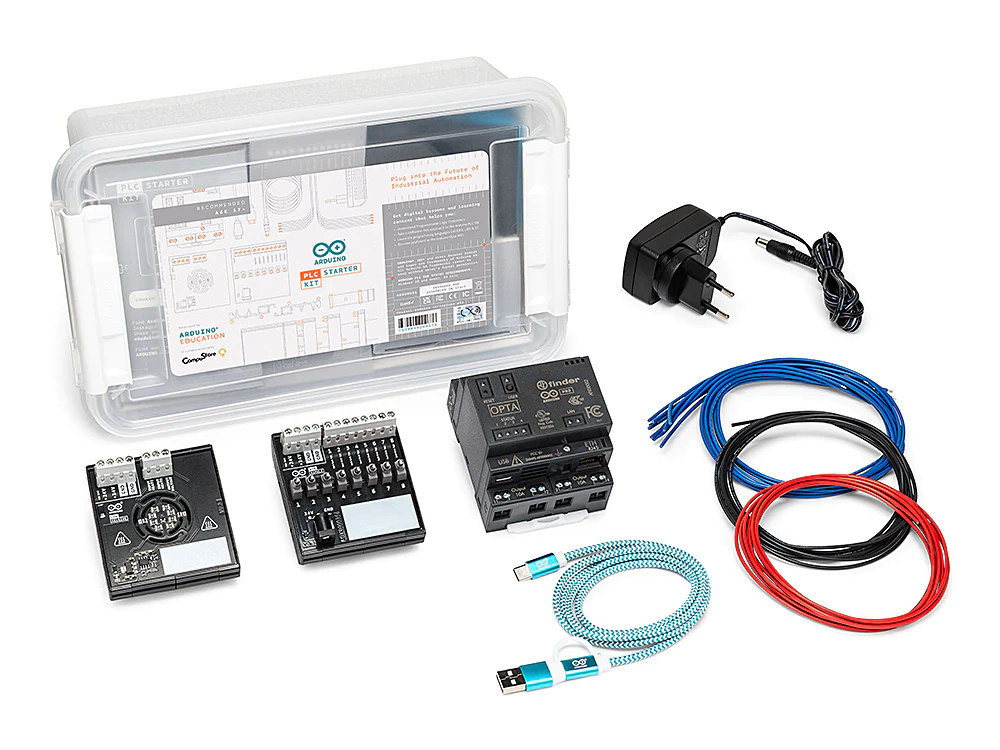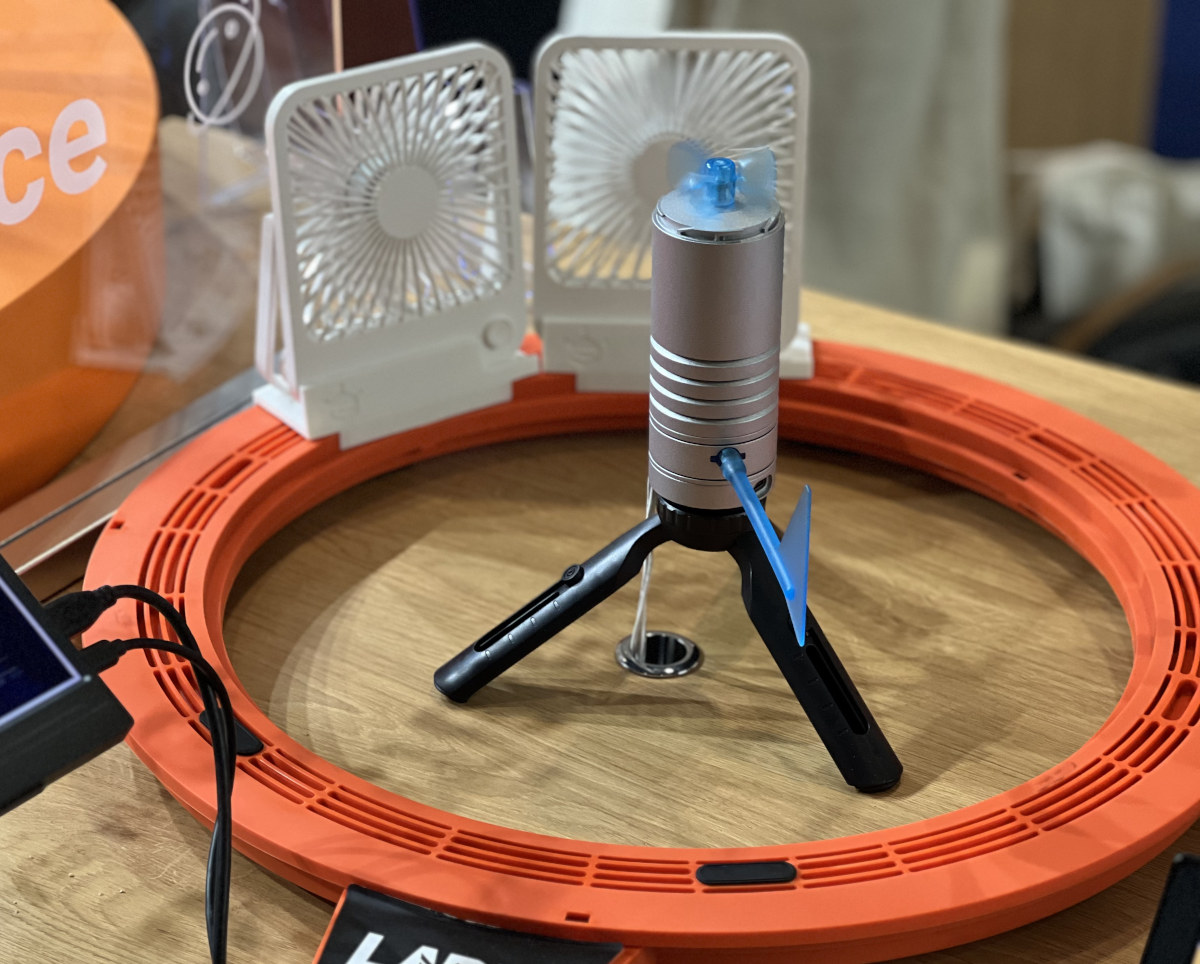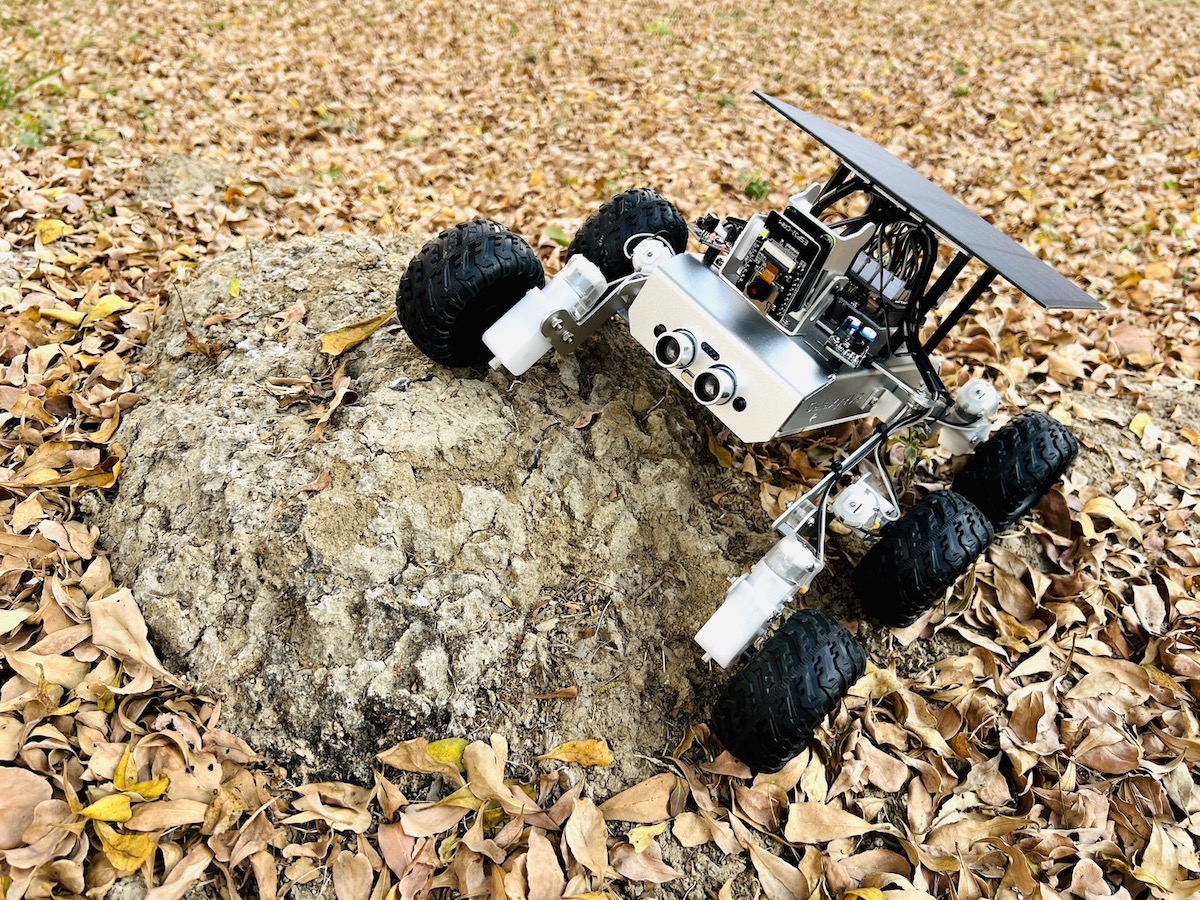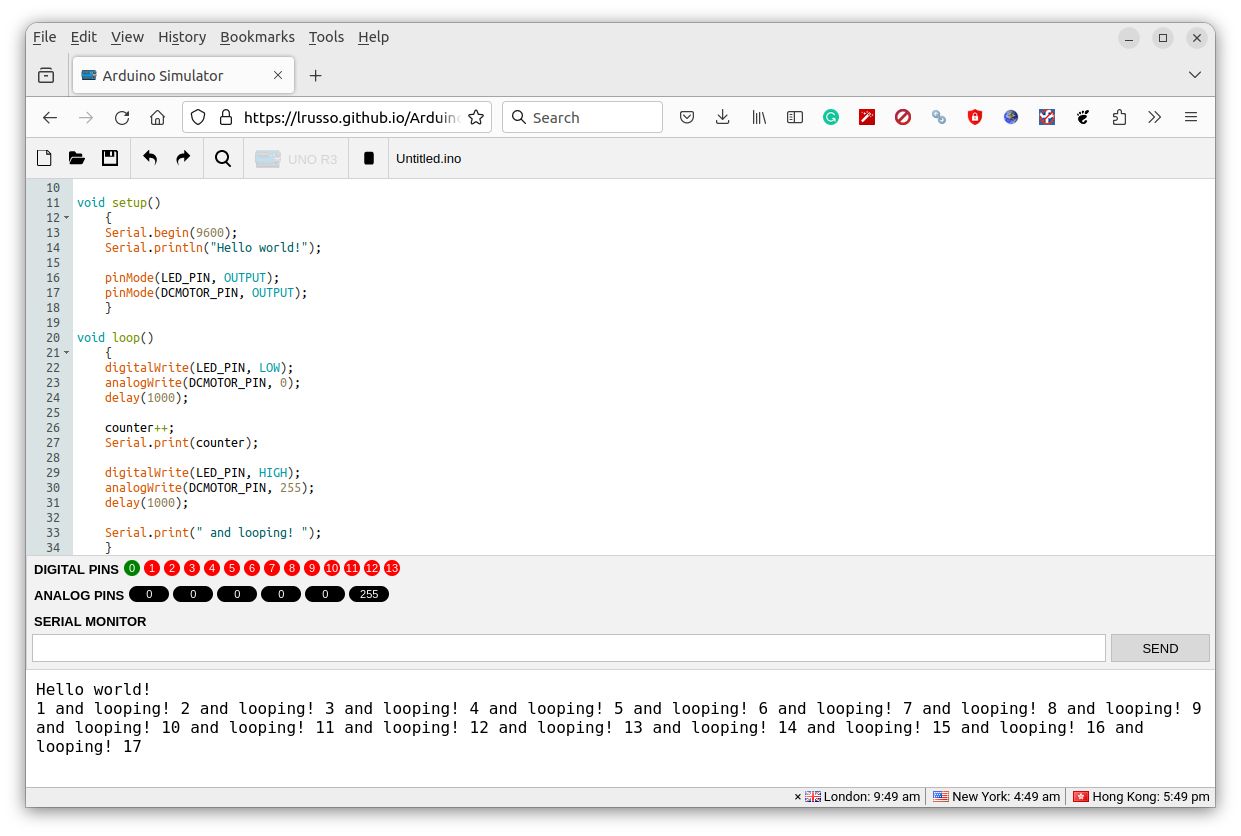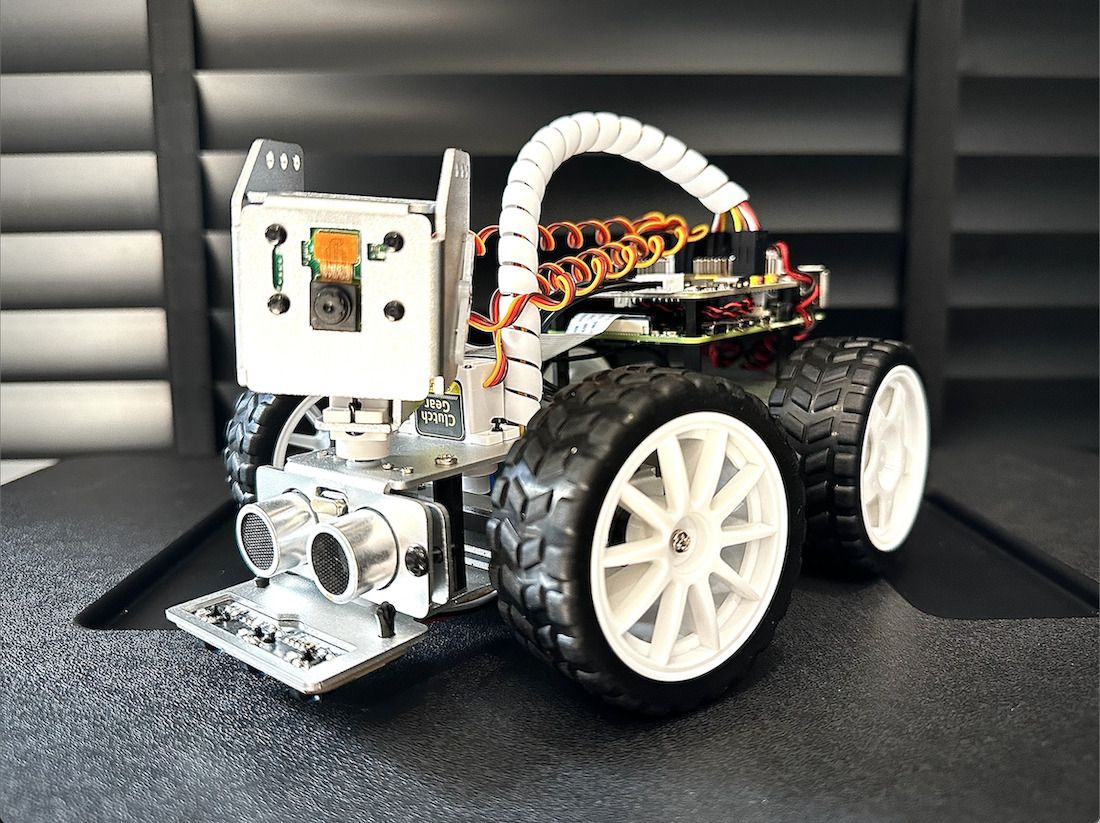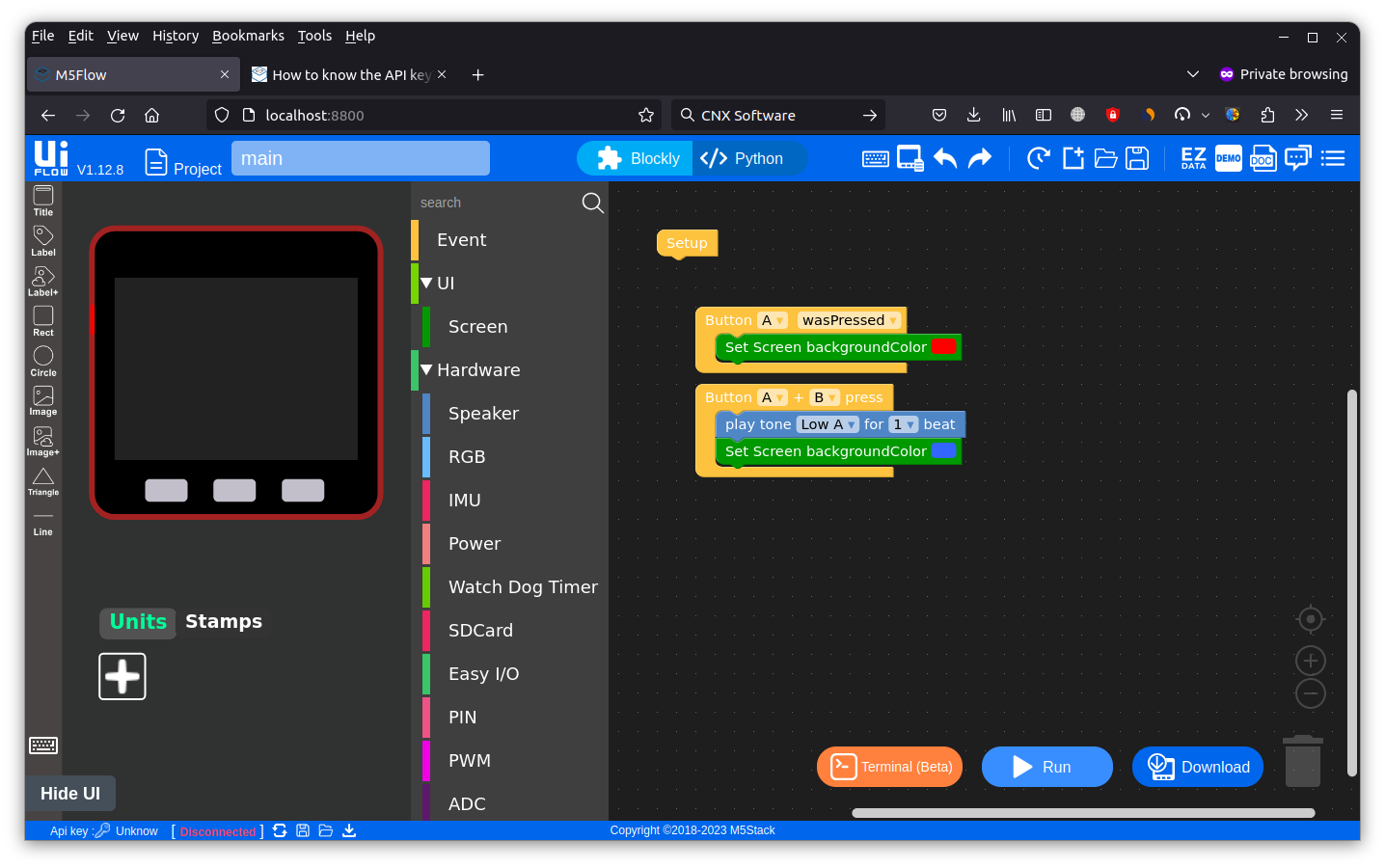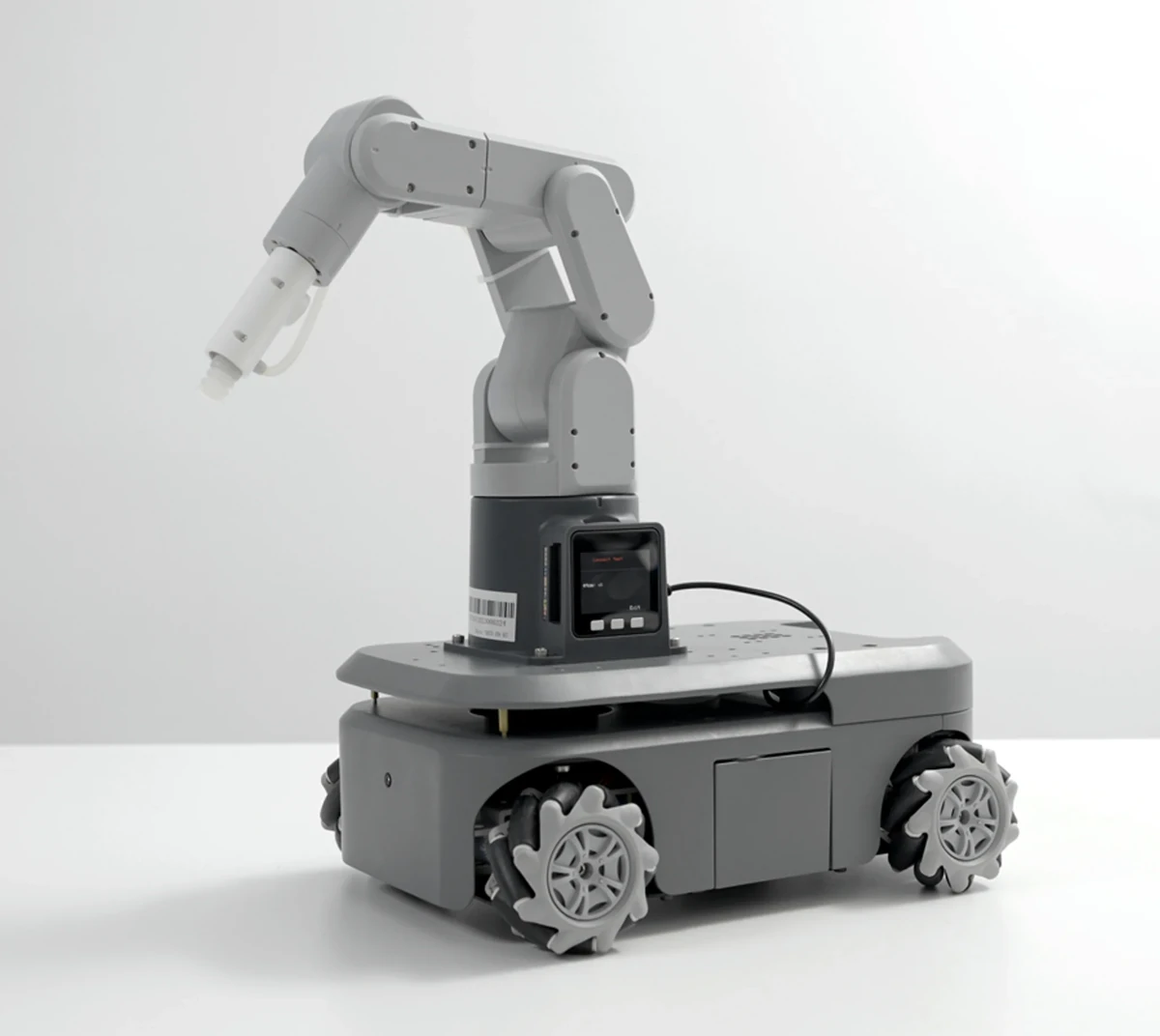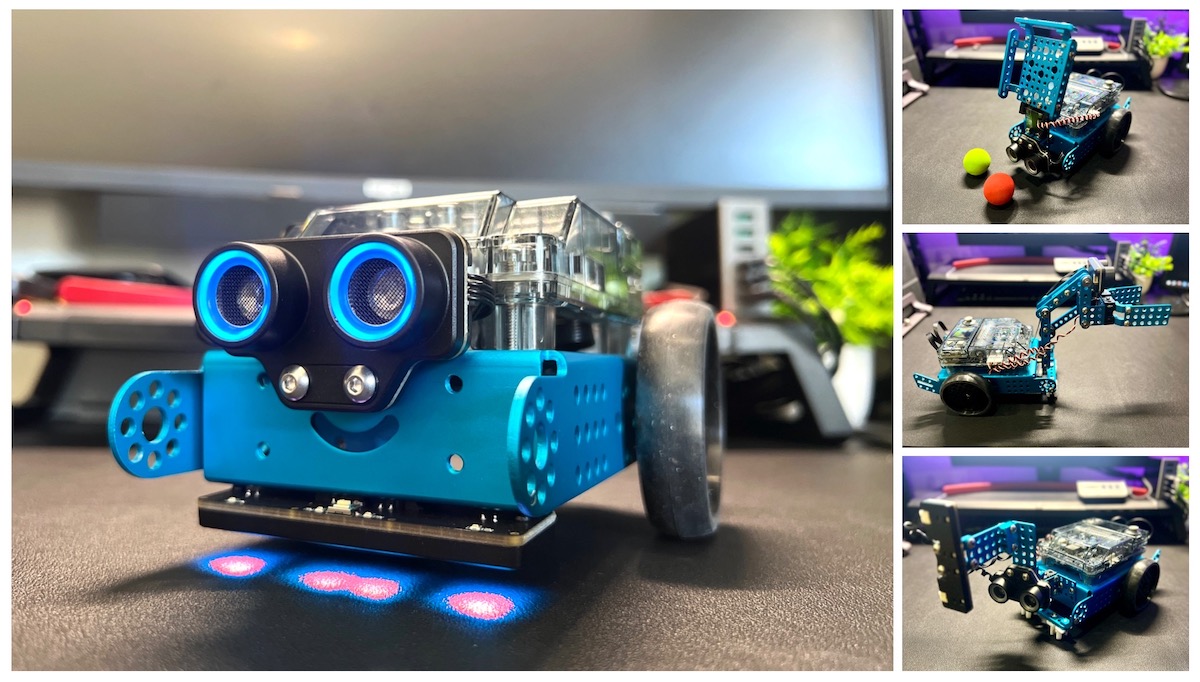Arduino PLC Starter Kit combines the Arduino Opta micro PLC, the Arduino DIN Simul8 digital input simulator and power distribution board, and the Arduino DIN Celsius board with two independent heater circuits and one temperature sensor acting as a temperature laboratory. The kit is supported by the Arduino PLC IDE first introduced in 2022 and comes with various cables and a power supply that allows users to quickly get started. Arduino says the kit targets the education of students aged 17 years and more. It includes 20 hours of lessons going through the history of programmable logic controllers, Modbus RS-485 communications, and how PLCs integrate with industrial simulated systems. The main hardware and software components of the kits are: Arduino Opta WiFi micro PLC based on an STMicro STM32H747XI dual-core Arm Cortex-M7/M4 MCU, offering Ethernet and RS485 communication interfaces, and exposing eight digital/analog inputs, plus four relay outputs. DIN Rail-mountable […]
The Lark Weather Station works with Arduino, ESP32, micro:bit, Raspberry Pi, and other boards
The Lark Weather Station measures wind speed, wind direction, temperature, humidity, and air pressure through a range of sensors and connects to popular development boards such as Arduino UNO, ESP32, BBC micro:bit, Raspberry Pi, or DFRobot Unihiker through I2C or UART. We’ve seen several projects for Internet-connection weather stations that retrieve weather data from the web and display the results locally, but the Lark Weather Station allows the users to get atmospheric data right in his/her current location thanks to its built-in anemometer, wind vane, and built-in sensors, as well as expansion interfaces for additional sensors. Lark Weather Station specifications: Storage – 16MB flash good to store about 160 days of data (when data is recorded once per minute) Sensors Compass Anemometer Wind Speed: 0.5~12m/s Cover to protect the anemometer during storage/transport Wind vane and wind direction shaft to report the wind direction (eight directions) Temperature Range –20~60℃ ±0.2℃ Humidity […]
SunFounder GalaxyRVR review – An Arduino programmable Mars Rover-like robot for education
SunFounder sent us a GalaxyRVR 6-wheel robot for review. It looks like NASA’s Mars Rover robots but targets the education market with an Arduino UNO R3 compatible board and an ESP32-CAM board for WiFi connectivity and video capture. The GalaxyRVR robot kit can transmit video signals over WiFi to explore planet Earth with your mobile device or tablet and the camera can be adjusted up and down thanks to a servo motor. The robot gets its power from a solar panel coupled with a battery and features sensors such as obstacle avoidance and ultrasonic modules. NASA’s Mars Rover exploration robots NASA is currently using the Perseverance rover, also known as Percy, as the latest planetary exploration robot to land on Mars. It is designed to explore the Jezero Crater as part of NASA’s Mars 2020 mission. In addition to its scientific instruments, Perseverance also carries Ingenuity, a small experimental Martian […]
ArduinoSimulator is an open-source Arduino Simulator that runs in your web browser
Leonardo Russo’s ArduinoSimulator is an open-source Arduino Simulator written in JavaScript that runs code directly in your web browser and shows the serial output and digital/analog pins status for various Arduino boards namely Arduino UNO R3, MEGA1280, MEGA2560, and NANO V3. We previously covered the Wokwi simulator for ESP32. Arduino, and Raspberry Pi RP2040 that’s a great little tool for educators to emulate circuits and run code right in a web browser, and it even supports the ESP32-P4 wireless MCU although it’s yet to be released. While the simulators are written in JavaScript and open-source, the tool itself is not, and for instance, you can’t run a self-hosted instance of Wokwi or use it offline. The ArduinoSimulator is fully open-source and runs entirely from a web browser. It’s not quite as complex and full-featured as Wokwi, as you can’t build your own circuits, but you still have an area to […]
SunFounder PiCar-X 2.0 review – A Raspberry Pi 4 AI robot car programmable with Blockly or Python
SunFounder PiCar-X 2.0 is an AI-powered self-driving robot car using the Raspberry Pi 3/4 as the main processing board. It is equipped with a camera module that can be moved by a 2-axis servo motor, allowing the camera to pan or tilt, an ultrasonic module for detecting distant objects, and a line detection module. The PiCar-X robot can also perform computer vision tasks such as color detection, face detection, traffic signs detection, automatic obstacle avoidance, and automatic line tracking. The PiCar-X can be programmed with two computer languages: Blockly-based Ezblock Studio drag-and-drop program and Python, and the robot works with OpenCV computer vision library and TensorFlow for AI workloads. Finally, you can also control the robot through the SunFounder controller application on your mobile phone. The company sent us a sample of the Picar-X 2.0 for review, so let’s get started. SunFounder PiCar-X 2.0 robot overview The PiCar-X robot kit […]
M5Stack releases local server implementations of UIFlow visual programming Web IDE
Visual programming is now a very popular method to teach programming to kids and M5Stack relies on UIFlow for their ESP32-based IoT development kit. Like most other companies, M5Stack provides either a Web IDE accessible from their server or a desktop program available for Windows, MacOS, or Linux, but the company has now released a local server implementation that allows users to run a Web IDE instance in their local network. The local server is available for Windows 11 x64, MacOS, Ubuntu 22.04, and Linux Arm (e.g. Raspberry Pi), so I downloaded the Ubuntu version to give it a try on my laptop. Somehow the Ubuntu release is full of Windows DLLs, but let’s ignore that for now, and the README.txt tells us to install one dependency and run the program as follows:
|
1 2 |
apt install ttf-mscorefonts-installer ./UIFlow.Server.Desktop |
A window pops up letting us start or stop the server. It can be accessed with […]
myAGV 2023 four-wheel mobile robot ships with Raspberry Pi 4 or Jetson Nano
Elephant Robotics myAGV 2023 is a 4-wheel mobile robot available with either Raspberry Pi 4 Model B SBC or NVIDIA Jetson Nano B01 developer kit, and it supports five different types of robotic arms to cater to various use cases. Compared to the previous generation myAGV robot, the 2023 model is fitted with high-performance planetary brushless DC motors, supports vacuum placement control, can take a backup battery, handles large payloads up to 5 kg, and integrates customizable LED lighting at the rear. myAGV 2023 specifications: Control board Pi model – Raspberry Pi 4B with 2GB RAM Jetson Nano model – NVIDIA Jetson Nano B01 with 4GB RAM Wheels – 4x Mecanuum wheels Motor – Planetary brushless DC motor Maximum linear speed – 0.9m/s Maximum Payload – 5 kg Video Output Pi model – 2x micro HDMI ports Jetson Nano model – HDMI and DisplayPort video outputs Camera Pi model – […]
Makeblock mBot Neo robot review with Smart World Add-on Pack
MakeBlock mBot Neo, also known as mBot2, is an educational robot that builds upon the previous generation mBot1 robot, and the company has sent us a review sample, following our earlier review of the Ultimate 2.0 10-in-1 educational robot kit, along with the Smart World Add-on Pack. The mBot Neo features a new ESP32-based CyberPi control board with WiFi connectivity for IoT and AI support. The robot is also equipped with a 2nd generation Ultrasonic sensor with improved object detection accuracy and status indicator, a built-in 4-ch RGB line sensor that can detect colors, as well as a new drive motor that comes with an encoder for more precise motion control. The mBot Neo robot kit is expandable with metal parts from other Makeblock models, mBuild modules and various electronic modules can be added making it also possible to build custom robots with third-party structural parts. The mBot Neo robot […]


